"World's first powered pants" by Arc'teryx and Skip give hikers a boost as they walk
Outdoor brand Arc'teryx and Google spinoff Skip have developed a pair of hiking trousers with a built-in exoskeleton that provides a 40 per cent power boost when walking uphill.
Designed to combat mobility challenges caused by ageing, fatigue and injury, the MO/GO pants work via motors at the knee that support the leg muscles during an ascent and the knee joint during the descent.
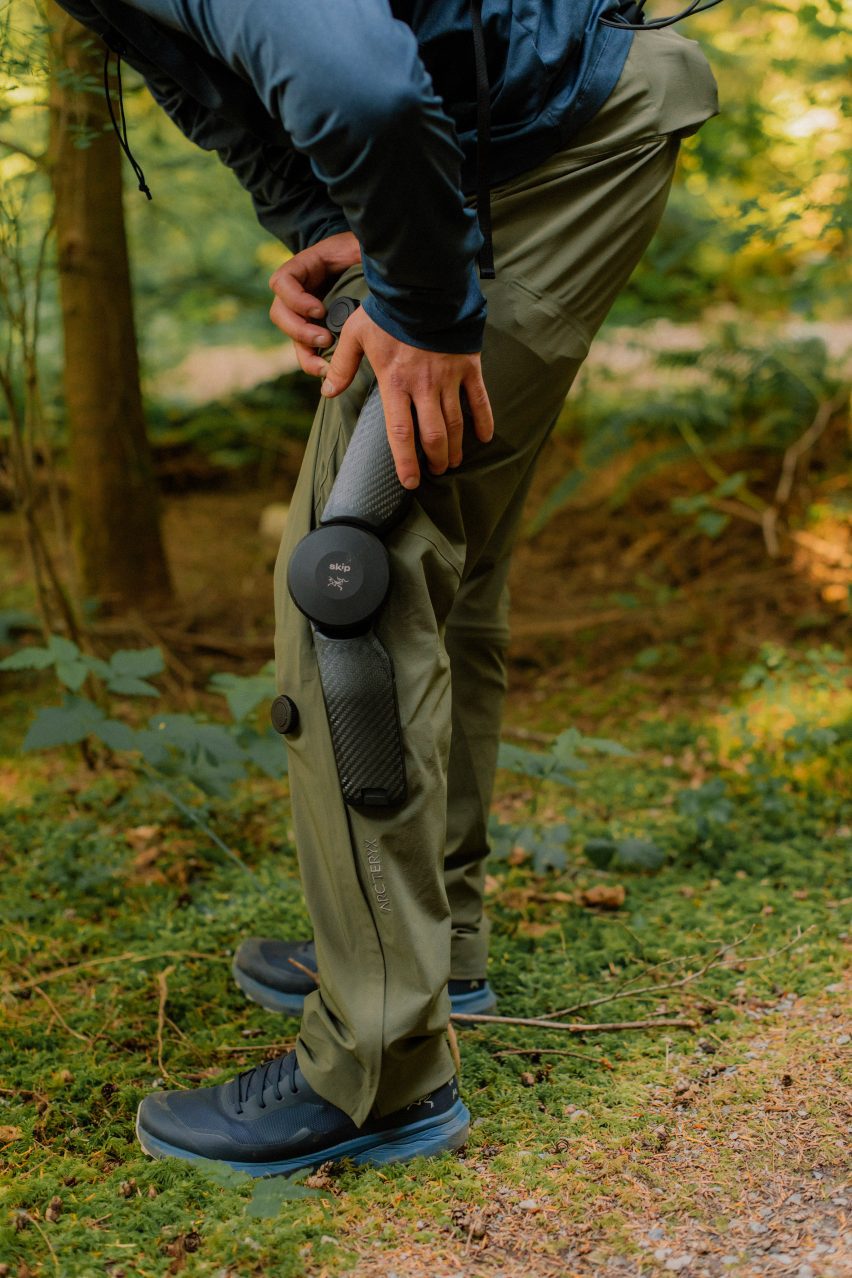
The project was originally initiated by a team at the Google X research and development facility, who went on to establish their own company Skip in 2023 to bring the idea to market.
Founders Kathryn Zealand and Anna Roumiantseva both have loved ones whose lives were affected by mobility challenges, prompting them to explore potential solutions using wearable robotics and artificial intelligence.
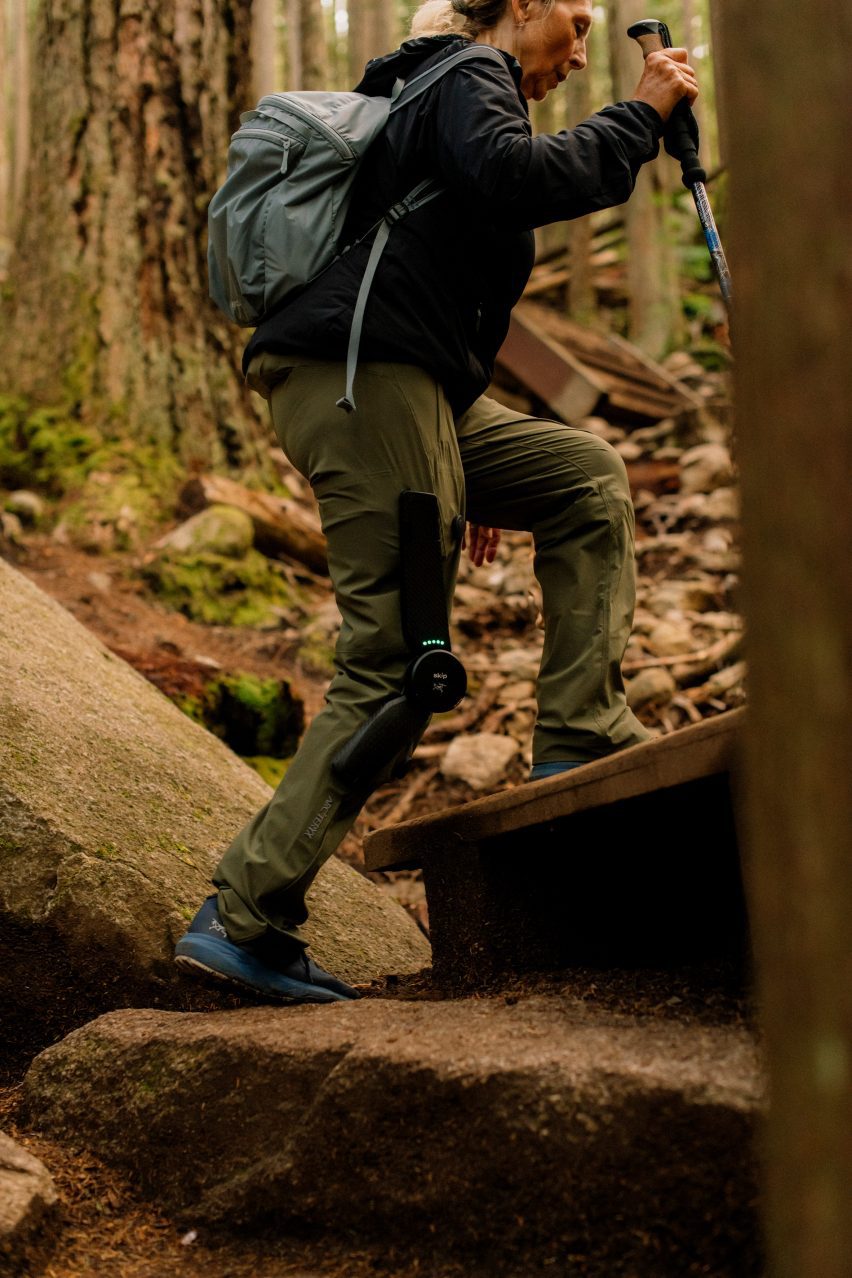
Skip partnered with the Advanced Concepts team at Arc'teryx to combine exoskeleton technology with a practical hiking trouser, adding bespoke carbon fibre support structures that spread force from the motor across the leg while hiking.
The result is the "world's first powered pants", the companies have proclaimed.
"MO/GO feels like a natural extension of the body, enhancing mobility without drawing attention to itself," the project team said. "This sleek, slimline design sets it far apart from the medicalised devices available to date."
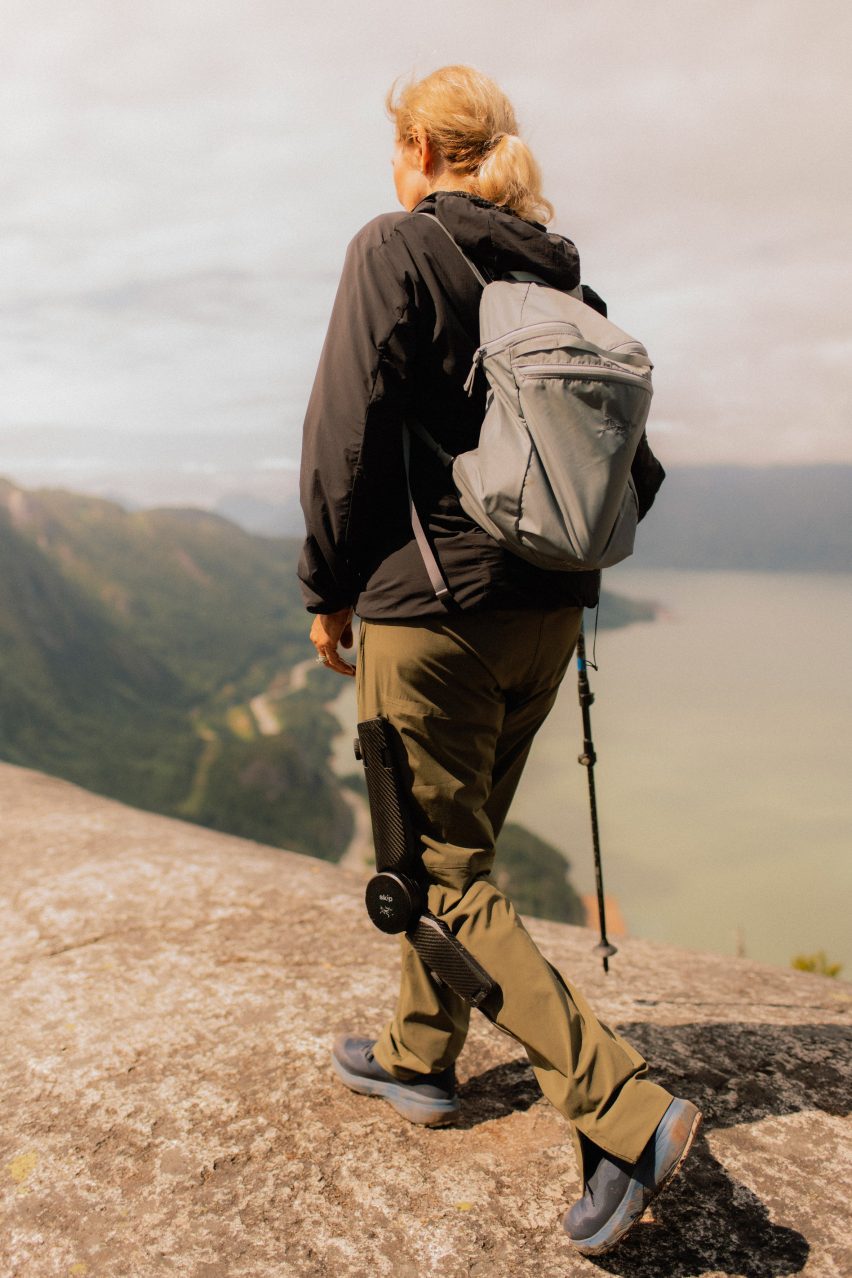
Skip named the product MO/GO after mountain goats and hopes it will be "the ultimate hiking guide" – encouraging people to enjoy outdoor pursuits that might otherwise be beyond their current capabilities.
Its compact battery-powered motors are integrated within an exoskeleton joint that snaps onto lightweight carbon fibre cuffs worn inside the trousers.
Fixings on the cuffs align with openings in the trouser legs, allowing the external powered module to attach and detach as required.
A pocket in the back of the trousers holds a battery that provides over three hours of maximum assistance when walking uphill – boosting leg strength by up to 40 per cent – and recharges automatically when walking downhill.
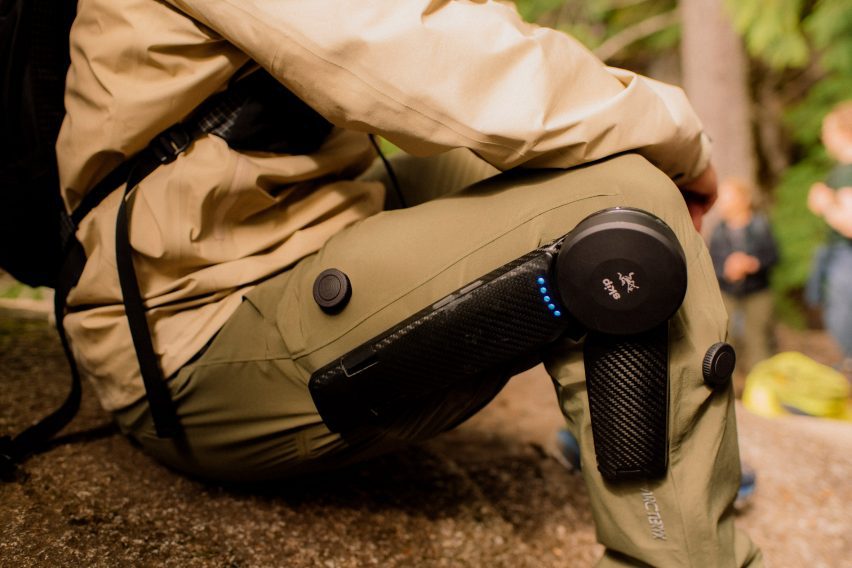
Three buttons on the device are used to turn the power on or off and to alter the amount of assistance. A suite of sensors linked to a computer module also makes real-time adjustments based on terrain and walking style.
For Skip, MO/GO represents the first example of a new product category it calls "movewear", which involves "integrating exoskeleton technology into consumer products that support you as you move effortlessly, confidently and joyfully".
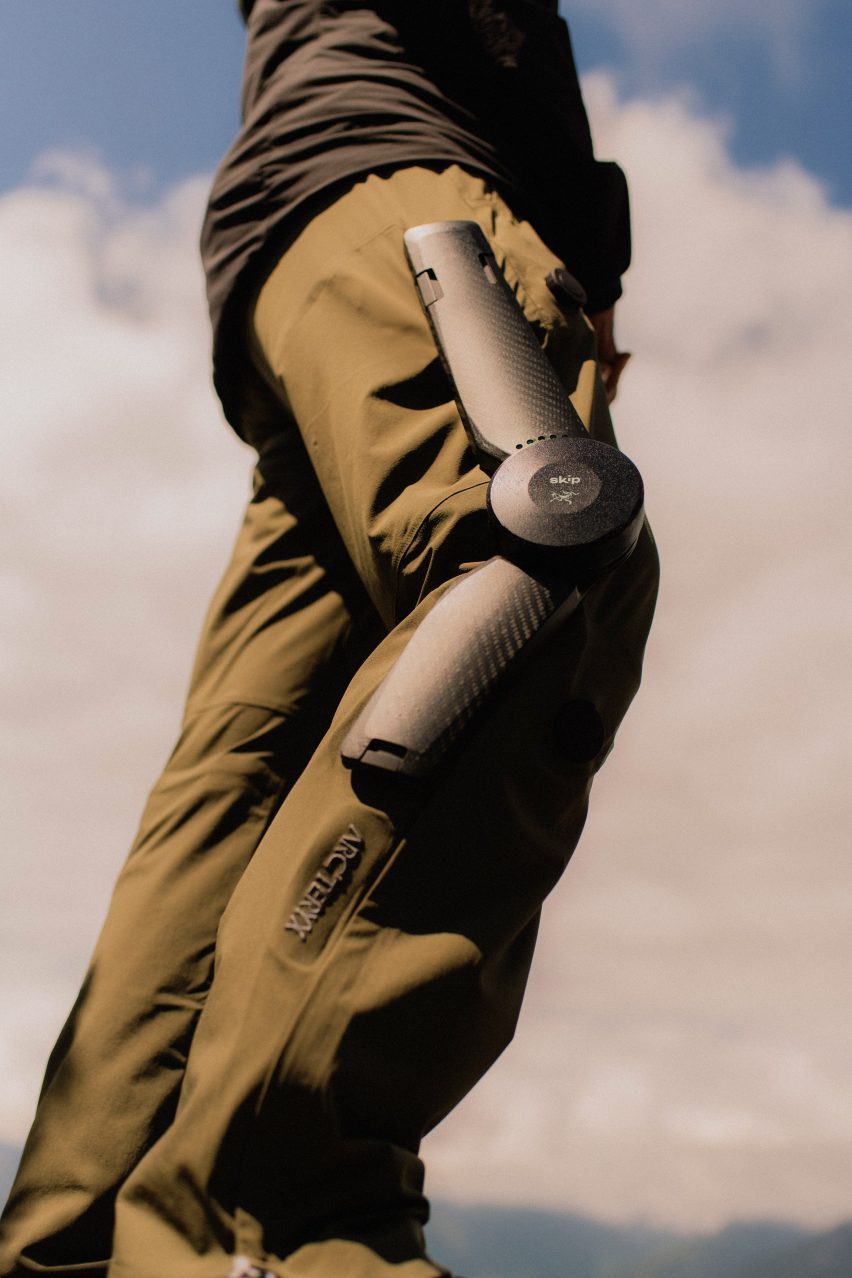
"We believe that it's not enough to make mobility products that are useful," the company said. "To make a real difference in how people move they need to be something you can't wait to put on in the morning and tell all your friends about."
MO/GO is currently available for reservation through the company's website, with shipments expected in late 2025. The product will also be available to rent from various locations throughout the autumn.
Other examples of products designed to assist movement include a mind-controlled suit that helps paralysed users move their arms and legs and a bionic wearable that uses artificial intelligence to correct walking patterns.